MercoPress. South Atlantic News Agency
Tag: UK General Election 2017
-
Friday, June 9th 2017 - 11:10 UTC
Hung parliament in UK; Theresa May calls for stability; Corbyn says PM must go
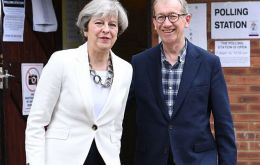
Britain's Conservatives have lost their majority in a snap general that has resulted in a hung parliament. With just a handful of seats left to declare, Thursday polls shows gains for the opposition Labour Party. This is seen as a humiliation for PM Minister Theresa May, who chose to call the election to try to strengthen her hand in talks with the EU on Brexit.
-
Friday, June 9th 2017 - 08:20 UTC
SNP still has a majority in Scotland after losing 21 seats; huge Tory upsurge

The Scottish National Party´s, SNP, former leader Alex Salmond has lost his Gordon seat amid a Scottish Conservative surge. The Tories also defeated the SNP's deputy leader Angus Robertson as they won seats across the country. The SNP finished on 35 seats - a majority of the 59 Scottish constituencies but a drop of 21 from the 56 they won in 2015.
-
Thursday, June 8th 2017 - 06:11 UTC
Thursday night UK will know the winner of the general election
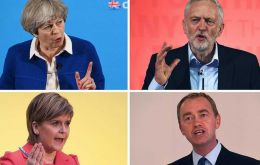
Millions of people will be casting their vote in the UK general election later. Polls open at 07:00 BST at more than 40,000 polling stations across the country, with counting starting once voting ends at 22:00 BST. A total of 650 Westminster MPs will be elected, with about 46.9 million people registered to vote. That is up from the last general election, in 2015, when there were 46.4 million registered voters.
-
Wednesday, June 7th 2017 - 06:38 UTC
UK election: only half of under 30 certain to vote on Thursday, shows poll
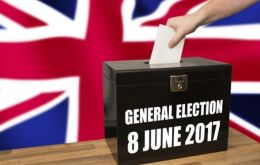
Only half of Britons under the age of 30 say they are certain to vote in Thursday’s election, according to a survey that casts doubt on Labour leader Jeremy Corbyn’s strategy of energizing non-voters. According to the Financial Times, the youth vote has been a source of uncertainty in opinion polls, some of which imply turnout among young people of up to 80% on Thursday — nearly double the levels seen in previous elections.
-
Friday, June 2nd 2017 - 08:04 UTC
UK June 8 election: 18 to 24 year olds turnout a determining factor, and challenge for pollsters
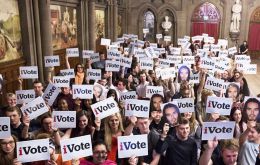
The UK June 8 national election divergence in projections from pollsters is making the result hard to call and one of the key factors at the heart of the variation is whether younger and less well-off voters will turn out, and in what numbers. To achieve an upset, Labour are going to be hugely dependent on the trend that says younger and poorer voters, who appear to be rallying behind party leader James Corbyn, don’t actually vote come polling day.
-
Friday, June 2nd 2017 - 07:47 UTC
Labour and Tories recovering ground in Scotland; SNP ahead with 43% vote intention
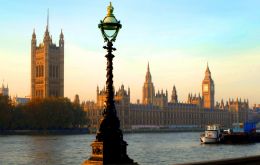
Labour is running neck-and-neck with the Tories in Scotland, with both parties attracting around 25% of the vote, a new opinion poll has indicated. While the latest Ipsos Mori findings for STV put the SNP (Scottish National Party) out in front with backing from 43% of Scots certain to vote - down from its 2015 result of 50% - Scottish Labour and the Scottish Conservatives are tied on 25% each.
-
Monday, May 29th 2017 - 08:21 UTC
Manchester, security and patriotism take center stage of UK election

British Labour leader Jeremy Corbyn attempted to head off potential Conservative attacks on his patriotism as he promised to be “strong against terrorism and strong against the causes of terrorism” after the Manchester attack. Corbyn said Monday’s suicide bombing cannot be ignored as General Election campaigning resumes but called for “quality” debate “without impugning anyone’s patriotism”.
-
Wednesday, May 17th 2017 - 09:10 UTC
UK top union leader anticipates major loss for Labour; Corbyn releases plans to nationalize energy and water industries

One of Jeremy Corbyn's key allies, Unite boss Len McCluskey, has said he cannot see Labour winning the election. A Labor victory on 8 June would be “extraordinary” given the state of the party and criticism of it in the media. He suggested winning 200 seats - nearly 30 fewer than in 2015 - would be a “successful” result for Mr. Corbyn.
-
Monday, April 24th 2017 - 11:26 UTC
PM May's snap election driven by “political opportunism”, claims EU parliament Brexit negotiator
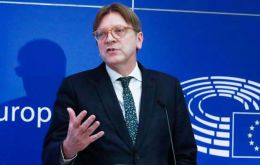
UK Prime Minister Theresa May's claims that a general election victory will strengthen her hand in Brexit negotiations have been called “nonsensical” by the European Parliament's chief Brexit coordinator. Guy Verhofstadt, a long-standing critic of Brexit, wrote in The Observer that it was “irrelevant” whether the Conservatives increased their majority.
-
Monday, April 24th 2017 - 06:14 UTC
Tony Blair predicts landslide for PM May, but warns 'unreasonable' Brexit policy is geared by right wing Tories
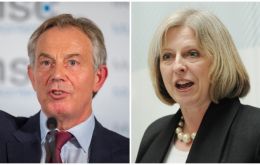
Tony Blair has urged voters not to elect MPs who “back Brexit at any cost”, whichever party they are from. The ex-PM told the BBC that Brexit was a bigger issue than party allegiance for the general election on 8 June.
